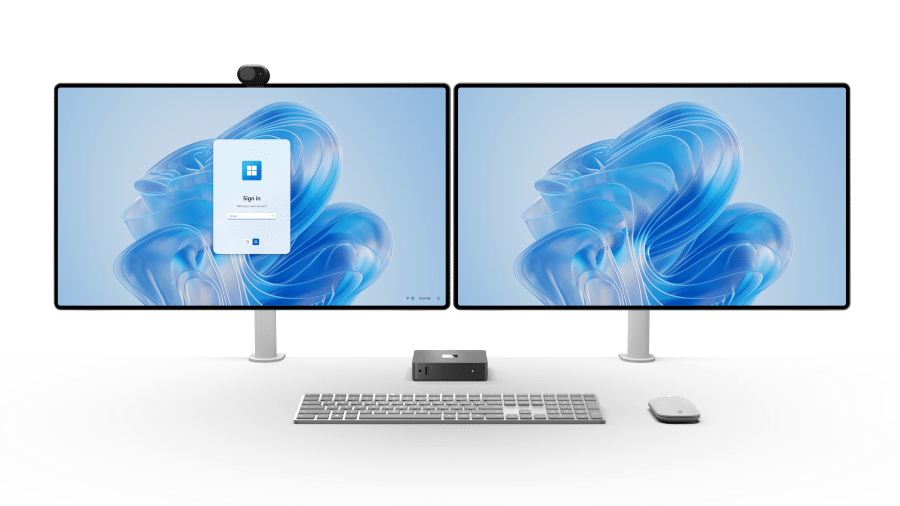The tech company introduces new features to enhance business continuity and security in hybrid and remote work environments.
In an increasingly interconnected business landscape exposed to technological risks, Microsoft has announced a series of enhancements for its Windows 365 and Azure Virtual Desktop services, focused on strengthening organizational resilience, built-in security, and operational continuity in the face of unforeseen events such as device theft, natural disasters, or technical interruptions.
According to recent data, 76% of companies surveyed by Vanson Bourne have experienced device theft in the past two years, with 33% facing legal or regulatory consequences due to data breaches and 32% reporting a loss of productivity. In response to this reality, Microsoft is betting on cloud-based solutions that allow quick and effective reactions.
Windows 365 Reserve: a cloud PC always available
One of the main innovations is Windows 365 Reserve, a solution that provides employees with immediate access to a preconfigured Cloud PC when their primary device is unavailable. Whether due to loss, theft, delivery delays, or breakdowns, this service prevents interruptions in professional activity without the need to manage replacement computers or complex infrastructures.
Each reserve Cloud PC includes Microsoft 365 applications, corporate policies, and security options already applied. Additionally, it can be accessed from any device via the Windows app or a web browser, and can be managed through Microsoft Intune.
Windows 365 Cloud Apps: only the app, without the full desktop
In private preview, Windows 365 Cloud Apps allows organizations to provide access to individual applications hosted on Cloud PCs, without the need to assign a complete virtual desktop to each user. This approach is designed for profiles such as seasonal workers, frontline employees, or remote staff who only need occasional access to specific tools.
Thanks to its integration with Microsoft Intune, this mode simplifies management and accelerates the transition from traditional VDI environments to the cloud.
New features in Windows 365 Link and NFC support
Microsoft has also improved its dedicated device Windows 365 Link, which enables direct access to multiple Cloud PCs via the Connection Center, a revamped interface that simplifies the selection of virtual machines at login. It also includes self-service tools for restarting, restoring, and diagnosing issues without IT department intervention.
Among the new features are extended support for multiple displays, with customizable resolution and scaling settings, and compatibility with NFC readers to facilitate login with FIDO2 security keys.
Windows 365 Link is already available in markets such as the U.S., U.K., Germany, Canada, Japan, Australia, and New Zealand, and will soon be available in France, the Netherlands, India, and Switzerland.
Disaster recovery and enhanced security
Another strategic initiative from Microsoft is region-based disaster recovery, currently in public preview for Windows 365 Frontline users. This feature allows for geographically distant backups of Cloud PCs to be created, ready to be activated in case of regional disruptions.
Simultaneously, the company has introduced new default security configurations for Cloud PCs, such as disabling USB redirection and clipboard use, as well as enabling virtualization-based security to protect against kernel exploits and credential theft.
Boosting graphic workloads with HP Anyware and GPU support
Microsoft is expanding its collaboration with HP to offer GPU support in Windows 365 Enterprise Cloud PCs, designed for intensive tasks such as 3D modeling, video editing, or data visualization. The integration with HP Anyware and the PCoIP protocol provides a seamless, low-latency experience without the need to configure gateways or additional networks.
Azure Virtual Desktop evolves with App-V and improved printing
In the Azure Virtual Desktop environment, Microsoft announces general support for Microsoft Application Virtualization (App-V) within the App Attach framework, allowing virtualized application packages to be reused without re-packaging, making the transition from traditional infrastructures easier.
Additionally, the Windows app—now also available for Android—includes enhancements in browser printing, optimizations for Microsoft Teams on mobile devices, and a new remote app launcher, improving the user experience across all devices.
Promotional discount for new customers
As an additional incentive, Microsoft is offering up to a 20% discount until October 31, 2025 on all Windows 365 plans for new customers during their first 12 months of subscription. This offer aims to facilitate the adoption of these solutions in organizations looking to bolster their continuity and digitalization strategies.
With this new wave of updates, Microsoft reinforces its commitment to secure and hybrid work environments, where resilience is not just an option but a strategic necessity to survive and thrive in an increasingly uncertain digital world.
source: blogs.windows.com

